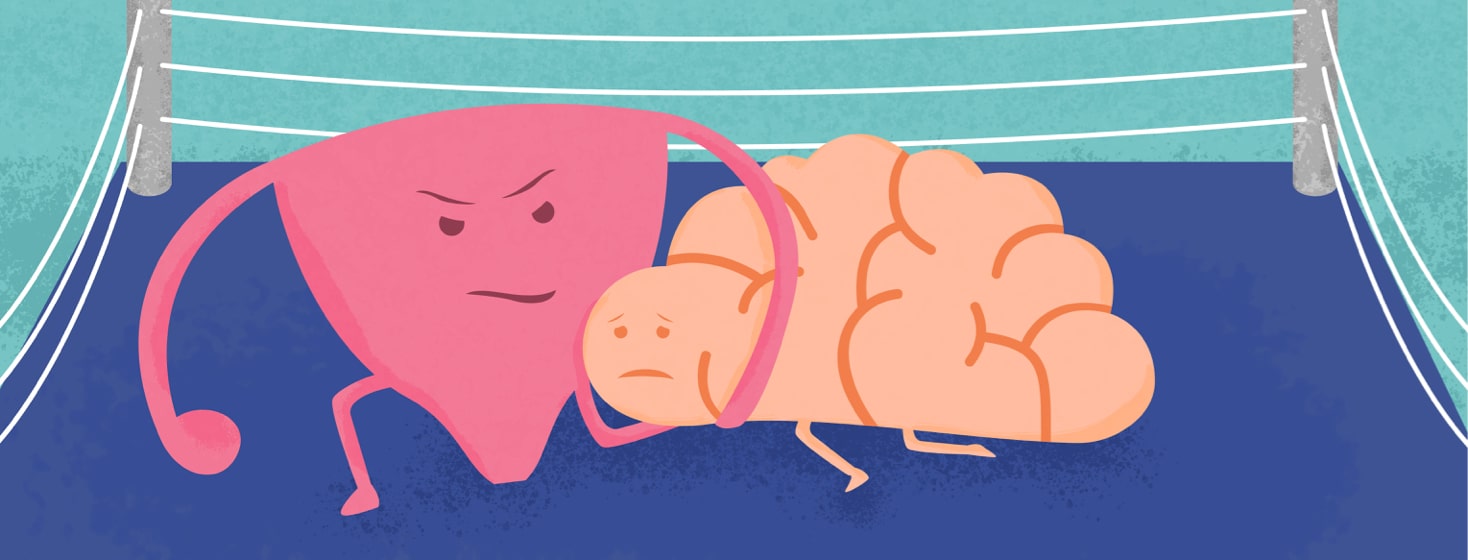Endometriosis Pain Increases Mental Health Risks
It has been known for some time that the challenges of living with endometriosis can increase the risk of depression and anxiety. But researchers are now giving special attention to the hows and whys of this risk to find better ways to treat mental health conditions or to prevent them from taking hold in the first place.
A recent study looked at women with and without endometriosis for nearly 20 years and discovered that chronic pain may have a central role in mental health.1
Endometriosis raises the risk of 3 mental health conditions
This large study, conducted between May 2000 and March 2019, involved 72,677 women with endometriosis who were matched with 147,251 women of the same age who did not have endometriosis. Each of these women was followed to see if they experienced depression, anxiety, or self-directed violence. This means they injured themselves, or died by life ending behavior. The women with endometriosis were found to have higher rates of all 3 conditions.1
Specifically, women with endometriosis were:1
- 1.4 times more likely to have anxiety
- 1.5 times more likely to be depressed
- 2 times more likely to experience self-directed violence
So, we know that the risk may be higher for women with endometriosis – but why?
Why does this happen?
The researchers found that rates of mental health conditions were higher in women who were 35 years old and younger. The conditions were also higher in women who had more endometriosis-related pain, such as period pain, pain during sex, and pelvic pain.1
Other factors that raised the risk for mental health conditions were pain-related comorbidities (these are issues that result from pain, such as poor sleep or lack of energy), use of opioid drugs (prescription painkillers), fatigue, and asthma. The use of birth control pills was also linked to depression.1
On the other hand, some things were shown to lower the likelihood of mental health conditions in women with endometriosis. For instance, women who had a history of pregnancy or fibroids had lower rates of depression and anxiety. Plus, using birth control pills or experiencing infertility was associated with less anxiety.1
The connection between pain and mental health
At the center of this study is its findings on pain: The pain of endometriosis raised the risk of all of the mental health conditions studied. Chronic pain can affect our mental health in a number of ways. People in pain may be unable to participate in activities they enjoy. Pain can also lead to loneliness and isolation. And just the expectation of pain from an endometriosis flare-up can lead to anxiety.
All of this points to an important finding: People with endometriosis have to pay special attention to pain and its effects. It is also important for people with endometriosis to partner with their doctors to find pain management solutions that work for them.
Taking care of your pain – and yourself
If endometriosis pain is already a part of your life or is not being sufficiently managed, talk to your doctor about steps you can take to get it under control. Remember that your mental health is an important part of your well-being and that you deserve quality care.
If endometriosis pain or mental health is not currently a concern, it is still worthwhile to bring it up with your doctor. Come up with a plan to take care of either of these concerns before they can affect your quality of life.
Outside of the doctor’s office, be sure to make time for self-care. It is also recommended that you talk about your pain with trusted friends or practitioners. Remember: Your mental health is just as important as your physical health. In the case of endometriosis pain, the 2 may be more related than we think.

Join the conversation